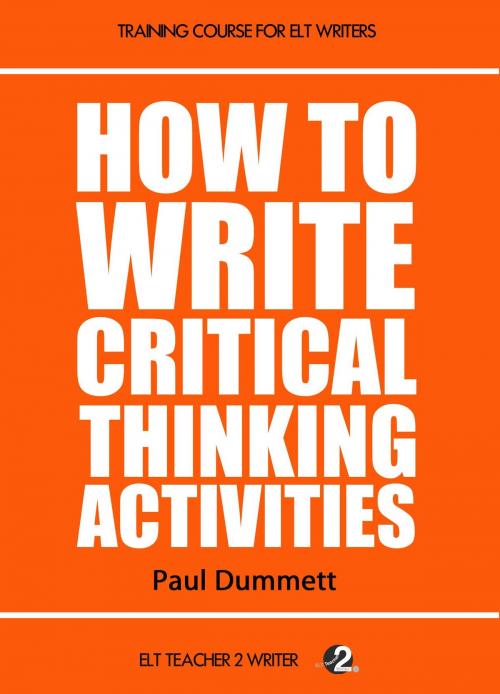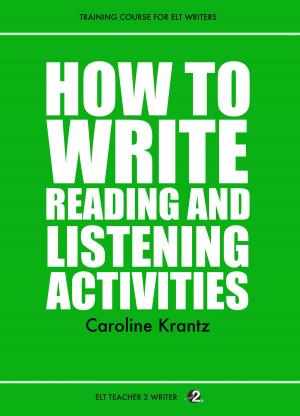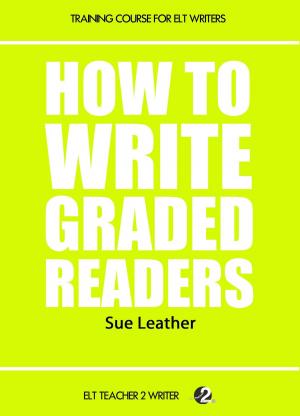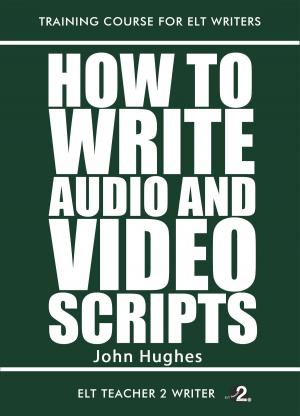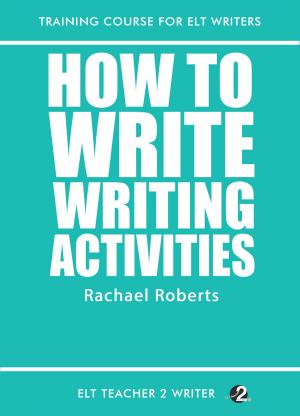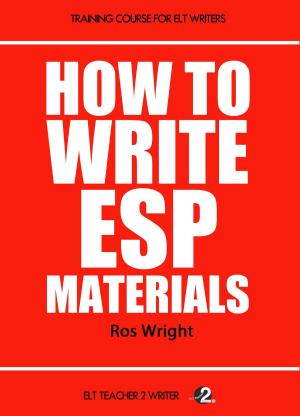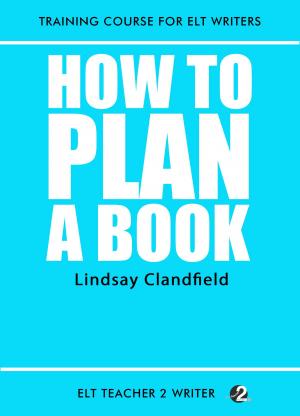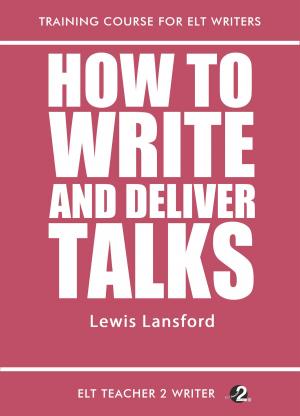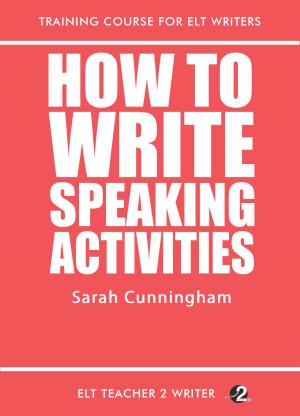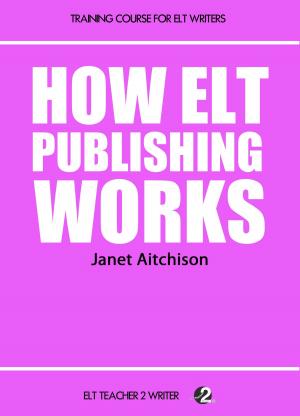| Author: | Paul Dummett | ISBN: | 9781301632916 |
| Publisher: | ELT Teacher 2 Writer | Publication: | August 17, 2013 |
| Imprint: | Smashwords Edition | Language: | English |
| Author: | Paul Dummett |
| ISBN: | 9781301632916 |
| Publisher: | ELT Teacher 2 Writer |
| Publication: | August 17, 2013 |
| Imprint: | Smashwords Edition |
| Language: | English |
What is Critical Thinking (CT)? What is a Critical Thinking approach? Why is it relevant and helpful in ELT?
A buzzword in ELT materials-development, CT takes comprehension to another level. Encouraging students to read between the lines, separate fact from opinion, identify aims, etc, deepens their understanding and awareness of how an author has used language to convey a message or develop an argument. Thinking critically requires the student to engage more intensely and make the language more memorable.
Paul Dummett gives examples of activities that promote a CT approach and makes suggestions for matching activity types with language levels. By the end of this module you will be able to identify appropriate CT activity types for different texts and write them. Paul then gives examples of activities that claim to fall into the category of CT, but actually do not.
This module forms part of the ELT Teacher 2 Writer training course. The training modules are designed to help you write better ELT materials, either for publication, or simply to improve the quality of your self-produced classroom materials.
What is Critical Thinking (CT)? What is a Critical Thinking approach? Why is it relevant and helpful in ELT?
A buzzword in ELT materials-development, CT takes comprehension to another level. Encouraging students to read between the lines, separate fact from opinion, identify aims, etc, deepens their understanding and awareness of how an author has used language to convey a message or develop an argument. Thinking critically requires the student to engage more intensely and make the language more memorable.
Paul Dummett gives examples of activities that promote a CT approach and makes suggestions for matching activity types with language levels. By the end of this module you will be able to identify appropriate CT activity types for different texts and write them. Paul then gives examples of activities that claim to fall into the category of CT, but actually do not.
This module forms part of the ELT Teacher 2 Writer training course. The training modules are designed to help you write better ELT materials, either for publication, or simply to improve the quality of your self-produced classroom materials.
